H.B. Berlow's Blog, page 12
January 30, 2023
Time to re-evaluate
Einstein said “Insanity is doing the same thing over and over again and expecting different results.” I have been accused of worse. Perhaps it is a certain age or a particular time in my life that is pushing me in a direction of re-evaluating how I approach…well, life. Perhaps we all go through this at “our time.”
If I were to live to be 90, then a full two-thirds of my life have passed. Maybe it will only be to 75, then there is significantly less time available. The thing is we don’t know. Right now, my biggest focus has been moving (or downsizing) and putting forth a continuing effort toward planning for retirement. These are paramount. What my wife and I do now, in the next several months, will completely impact how the rest of my life will be.
So, be it.
I have commented numerous times in the past (both in this forum, other social media, and in general conversation) that writing and cooking are my two most significant creative outputs. Without them, I am not me. I am not anyone. Certainly not this entity I have become over 60 years. So, those facets remain. Yet there is only so much time and energy to devote or offer to other sources. This is where I need to be meticulous about the most judicious use of my time.
I can sit here in my office and focus on the numerous Works In Progress on my list. I can even go to the local library and do deep research, if required. This will keep the creative side of the brain functioning. However, beyond that, I’m choosing to stay close to home, notwithstanding local events and visitations with those in my close-knit circle.
Sadly, I have withdrawn socially, perhaps as a result of the pandemic lockdown and the extreme divisiveness in this country. I no longer have the strength or desire to fight the incredibly mean-spirited people who have come out from under rocks and oozed from the slime. Currently, I have only a dinner group that meets every other month. This is an easy level of participation because, well, we all have to eat, right? Additionally, they are a like-minded group of folks who create a comfortable environment when I am around them. But I look at events I see advertised and have, at least at this point in time, no desire to be in attendance.
It just may be that I am still trying to decide who I want to be. Sometimes we don’t get to choose. We become, evolve, on a natural basis, as circumstances surrounding us dictate. We’d like to think we are in control more than in fact we are. Nevertheless, it is necessary to go through the process.
Over the last twenty years, I have put forth a great effort at learning and being involved in social media, developing a platform, and making myself available when asked to do so. I am going to take Einstein’s advise. I am going to try something different. We’ll see what the results are.
November 23, 2022
EVERY DAY IS THANKSGIVING
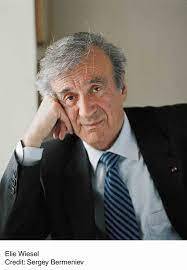
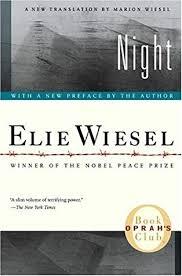
After having read “Night” by Elie Wiesel when I was considerably younger, about the time I was practicing for my Bar Mitzvah, I wished to re-read it now as an adult. So much time had passed as to give me a new, more mature perspective of the tale. The edition I bought included an appendix with Wiesel’s Nobel Peace Prize acceptance speech.
He references, right from the beginning, a prayer, a benediction. Ashamedly, I was not familiar with it but it has grown in importance since I discovered it and its meaning:
בָּרוּךְ אַתָּה ה’ אֱ-לֹהֵינוּ מֶלֶךְ הָעוֹלָם, שֶׁהֶחֱיָנוּ וְקִיְּמָנוּ וְהִגִיעָנוּ לַזְּמַן הַזֶּה.
Transliteration: Baruch atah, Adonai Eloheinu, Melech haolam, shehecheyanu, v’kiy’manu, v’higiyanu laz’man hazeh.
Translation: Blessed are You, Adonai our G-d, Sovereign of all, who has kept us alive, sustained us, and brought us to this moment.
The simplicity of the words overshadows the magnitude of their greatness. It starts by acknowledging, for the Jews, one of the Seven Names of God. This is followed by three simple sets of appreciation.
Some translations say “for giving us life” while others (as in this case) noting how we have been kept alive by the Almighty. This is no small measure. In a world of illness and disease, anger and violence, and grave uncertainty, being kept alive is miraculous.
This is different from being sustained. It is not merely the life preserver we wear to allow us to bob up and down in unchartered waters while waiting for rescue. It might be, in the case of those far more unfortunate. To me, it is keeping the illness and disease and anger and violence and uncertainty at bay so that we may find our true way.
Finally, we praise being brought to this day. As Wiesel indicates, so many did not survive the Holocaust. So many lives were needlessly and insensibly lost. To be here, today, now, is indeed a blessing as it provides us with Hope for being able to continue on to tomorrow.
For so many years, Thanksgiving (as with many holidays) has strayed from the original intention that Abraham Lincoln had intended. Thinking of natives to this land sharing their bounty with struggling pilgrims and bonding over a meal seems so quaint and far removed from the insensitivity so many exhibit these days toward those unlike them.
Commercialization, product brands, shopping, Black Friday, economic forecasts – none of those have anything to do with a day of thanks, whether it be for the harvest or the simple blessings we have experienced during the year.
So, I re-read “Night”, I read Wiesel’s acceptance speech, and I recited the Shehecheyanu. And I have continued to recite it. Certainly, I am grateful for having a job and saving toward retirement; being in relatively good health; being able to create and think and produce works of entertainment if not completely art; to know a wide variety of people from a wide range of backgrounds whose stories and experiences embolden me. These are all blessings.
But to be given life, to be sustained, and to be here right now, on this day, is where everything starts. This is my day of thanks. Should I be fortunate to wake up tomorrow, that will be my next day of thanks.
Whatever you do, wherever you are, find something to be grateful for. Celebrate even one small blessing in your life. From there, take one small step forward.
I wish you all peace, joy, and happiness – today and every day.
November 19, 2022
BOOKS THAT HAVE MADE AN IMPACT, PART 4
A while ago, I was playing a game (I believe it was Fictionary) that involved unique words and their definitions. The cardholder had the true definition. The players wrote down what they thought it meant or, at the very least, a plausible definition. The cardholder read them all. The players guessed.
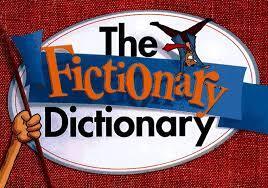
The one word that comes to mind was “spermologist” and it does not mean what you think it means. It is “the collector of trivia” and since everyone in my family knows that is what I am, it was a shock to them that I did NOT know the answer.
This brings to mind “The Book of Lists” by David Wallechinsky, his father Irving Wallace, and his sister Amy Wallace. The first edition came out in 1977. “The Book of Lists 2”, “The Book of Lists 3”, “The Book of Lists for the 1990s”, and “Significa” followed it. I own all of them. There were additional entries in this series.
Some of the lists were from history (i.e. the Ten Commandments, the Seven Wonders of the Ancient World, etc.) and others were celebrities offering their opinions (10 Historical Figures You Would Invite for Dinner). Some lists were innocuous but all were fascinating.
It was a pastime for a young man that turned into a passion. While I often proclaimed a desire to become a contestant on Jeopardy, what this minor hobby turned into was a passion for research and learning that has aided and abetted both my intellectual life and my writing life. The minutiae of history are often where the great stories are found.
I learned that prior to the publication of my first historical crime fiction novel, “Ark City Confidential” when I took the tales told to me by my wife’s late uncle of Arkansas City, Kansas and the wild times of the 1930’s.
This yielded a four book series and then a desire to continue on to a new series. I have always found comfort in libraries. This one small boyhood passion, spurred on by one unique book, has translated into the very essence of my current writing. Books, of all kinds, do make an impact.
November 16, 2022
BOOKS THAT HAVE MADE AN IMPACT, PART 3
By now, it is apparent I enjoy crime fiction. I write it. I read it. I blog about it. I even posted about the many faces and voices of Philip Marlowe.
However, when we are talking about books that have made an impact, the one author I read in abundance very early on was Jim Thompson. I have 11 of his works, second only to Cornell Woolrich. Before I read “The Dain Curse” or “The Big Sleep” or even “American Tabloid”, I had devoured “The Killer Inside Me.”
It is a raw, haunting, and downright scary depiction of a warped mind in the person of a Texas sheriff who everyone passes off as a brainless twit. With psychosexual aspects, highly misogynistic themes, and violence indicative of a far cheaper pulp novel, this book will impact anyone who reads it. No less an artist than Stanley Kubrick commented the book was “probably the most chilling and believable first-person story of a criminally warped mind I have ever encountered.”
I recall reading that Val Kilmer at one time had the rights to the book. I had seen the 1976 film version starring Stacey Keach and remember thinking it was rather sanitized. On the other hand, the 2010 version was too literal and too over the top despite better production values and a better quality of acting.
What I find interesting is how far Thompson went with this piece. He was every inch a pulp writer, interested more in putting out as many words as possible and likely as salacious as possible. After all, that’s what the publisher wanted; it sold copies. Several of his works have had a smattering of greatness to them, whether plot or character or spot on dialogue. His work vacillates between raw power and sloppy plotting. But he is always fascinating.
Jim Thompson was my start in crime fiction. Hammett, Chandler, and Ellroy came later. From those ingredients, I have gone on to make some interesting confections of my own.
November 12, 2022
BOOKS THAT HAVE MADE AN IMPACT, PART 2
Unless someone is a prodigy or outright genius, I don’t believe readings in philosophy, of any kind, have a meaningful impact at an early age. Even in high school, it takes a broad mind to understand how certain ideals relate to knowledge of the world and life as we know it.
It was in my late 20’s, after a fateful marriage and a period of Odysseus-type wandering, that I found myself in Boston, surrounded by a vibrant writing community. At the recommendation of several acquaintances, I read the Greek and Roman poets, early 20th century European poets, and tracts of all kinds in all subjects. As best as I can remember, it was then I first came across the Meditations by Marcus Aurelius.
I’m not quite sure if I was taken in by the writing style (based largely on whatever translation I read) or the themes. After picking it up again within the last year, I relate more to the worldly weariness of its viewpoint, the notion that the writer (a philosopher-emperor and general) could easily review his life in quiet contemplation. Very few of us do so these days, regardless of our backgrounds. Perhaps I was using the book to force myself to look inward as I approached the age of sixty.
There are far too many critics that focus on the nature of the man who is writing rather than what is being written. When I recently took it up again, I did my best to avoid reviewing the biography of Marcus Aurelius, hoping to focus on the impact of the Meditations themsleves. I also found a vibrant online community of Stoics who have embraced the ideals as they seek something equating with peace in their lives.
What I found fascinating is the impact of the words to my nearly 30 year old self versus that of my nearly 60 year old self. Most philosophies fit differently upon a person as they grow and change in life. It will be interesting to see how I feel about the old emperor should I be fortunate enough to make it to 80.
November 9, 2022
BOOKS THAT HAVE MADE AN IMPACT, PART 1
It was 1990, two years after my divorce. I had made a swing from Florida to Connecticut to Northern California to Southern California and back to Florida. I was lost. No relationship, no assets, no plan. On top of that, I was living with my parents.
I read an article about the Turner Tomorrow Fellowship Awards with a prize of $500,000 and a publishing contract. My background of study was in screenwriting and I had dabbled in poetry. But, sure, yeah, why not write a novel with grandiose themes? At least it was a plan.
At that time, I came across a lovely second edition hardback copy of W. Somerset Maugham’s “The Razor’s Edge”. I was only vaguely familiar with the author and was aware of the Academy Award winning 1946 film version. Perhaps it was the inscription from the Katha-Upanishad that caught my attention:
The sharp edge of a razor is difficult to pass over;
thus the wise say the path to Salvation is hard.
Perhaps I was feeling melodramatic with my own circumstances, or maybe I wasn’t. At that moment in time, I had zero prospects and no idea how to get to that particular place called Nowhere. I began writing a long poetical work, somewhat akin to Byron or Milton or Alexander Pope. A well-read writer is not necessarily a good writer. I still have it buried away somewhere and simply smile at its pretentiousness.
However, as I read Maugham’s work, I was captivated by Larry Darrell’s journey from the trauma of World War I, the Roaring 20’s, and through the Stock Market Crash of 1929. Through the highs and lows, he is seeking something his friends and acquaintances are unaware of, a kind of peace or, just maybe, that release from a cycle of human suffering.
What I found fascinating was how steadfast Larry was in determining he would gain knowledge and find a path. All pretensions aside, that is all I wanted at that point in time. Twenty-eight years old, divorced, and an uncertain future. What else was there to want?
I had a leather bookmark from the Home Testing Institute (a now obsolete entity) that I figured was perfect for the volume I had. It has been in that book for 32 years and is there still. I re-read the book perhaps two more times when I got to my thirties but I had set about following the template of Larry Darrell.
My thirties and forties were periods where I did read and learned as much as I could. It was in my fifties and, now sixties, that I have learned to process that knowledge and live in a particular manner indicated by that knowledge. Strangely enough, it is the same manner instilled in me by my parents. It seems I have come full circle.
November 2, 2022
CORNELL WOOLRICH
As a writer of historical crime fiction, I have a particular pleasure in reading classic hard-boiled fiction. Naturally, any of the “Black Mask” writers issue forth dramatic tales that were brand new for their day.
Dashiell Hammett’s work reads like a classic procedural given his experience as a Pinkerton agent. Raymond Chandler, on the other hand, eschews logical story-telling for mood and tone. There is a guttural sensibility about Jim Thompson with novels that define “pulp.” And, of course, James Ellroy blends jazz rhythms and scatological attitudes in his works.
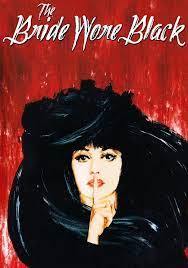
However, one particular writer stands out for dark themes that are truly not found in the aforementioned authors. Cornell Woolrich’s world is populated by doomed individuals. People, often decent in nature, find themselves is tragic situations and will invariably get dragged down in them. There is no happen ending, no resolution that brings someone from the shadows into the light. The bleakness falls under the auspices of noir. However, it is unrelenting. The suspense is created by the mere possibility that something good, anything good, may come out at the end.
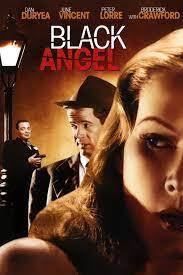
Early in life, he failed as both a screenwriter and a husband. He returned to New York from Hollywood and lived with his mother, mostly in hotels, for the rest of his life. Many of his classic works had the word “black” in the title: The Bride Wore Black; The Black Curtain; Black Alibi; The Black Angel; The Black Path of Fear. The tone is unmistakable. Several of his works, novels and short stories, were made into movies or radio programs.
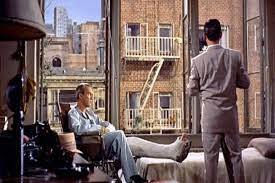
The most famous is the story It Had to Be Murder. This became the enormously fascinating Hitchcock film “Rear Window”. Many of his works were out of print when he died in 1968. Fortunately, short story collections started to appear in the early 1990’s. I own a total of 16 volumes, far and away more than any other author. The one volume I do not have is the excellent biography by Francis Nevins, “First You Dream, Then You Die.”
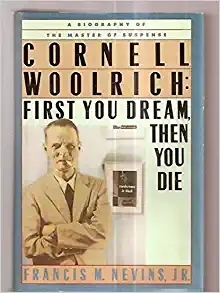
That being said, I appreciate Woolrich’s style and nihilism. It is reflective in some ways of his own life. He was able to infuse his works with much more of himself than an ordinary craftsman of writing. The underlying themes are too bleak for me to pursue in my own works. Nevertheless, he still provides a great deal of fascination all these years later and is worth looking into.
October 29, 2022
NaNoWriMo
With November being only three days away, I figured it was worthwhile to comment on that infamous monthly writing adventure, NaNoWriMo. For those of you who are not writers (or have been far removed from the social media world), NaNoWriMo stands for “National Novel Writing Month.” The goal is to complete a 50,000-word novel within the month of November. That averages out to 1667 words per day, which is about a good average for most writers on a day where they are setting themselves to the task. However, maintaining that over the course of 30 full days is, indeed, a challenge. And this does not mean simply writing “All work and no play makes Jack a dull boy” five thousand times.
As best as I can tell from my records (which includes a PDF of a “winner’s certificate”), I first attempted back in 2007. It was at a point where I was working on some poetry, considering some screenplays, but hadn’t yet gotten involved in full-fledged fiction writing. This event was the kickoff.
I continued for five years and “completed” five novels. I also learned enough at the time to work on other fiction projects. When my first book “Swan Song” (now out of print) was published in 2012, the ball was rolling in terms of writing book length fiction and I stopped participating in the event.
The nature of the event is to encourage writes to produce a novel, or at least a first draft. Maybe what you complete in those 30 days is pure drivel and you decide to scrap it. Or, just maybe, there is something worthwhile about, a crumb of interest to you that makes you want to revise and edit and, possibly, bring it to print. I found these examples of NaNoWriMo entrants who went on to publish their works:
Water for Elephants by Sara Gruen, published by Algonquin Books of Chapel Hill[38] Persistence of Memory by Amelia Atwater-Rhodes, published by Delacorte Press[38] Anna and the French Kiss by Stephanie Perkins, published by Dutton Juvenile[39][40] The Night Circus by Erin Morgenstern, published by Doubleday[41] Wool by Hugh Howey, published by Simon & Schuster[42][43] Cinder by Marissa Meyer, published by Square Fish[39] Fangirl by Rainbow Rowell, published by St. Martin’s Press[39][44] The Darwin Elevator by Jason M. Hough, published by Del Rey Books[45] Side Effects May Vary by Julie Murphy, published by HarperCollins Publishers[39][46]Assassin’s Heart by Sarah Ahiers, published by HarperCollins Publishers[39][47] The Forest of Hands and Teeth by Carrie Ryan, published by Gollancz[48]The Cut Out by Jack Heath, published by Allen & Unwin[49]The Beautiful Land, by Alan Averill, published by Ace Books[50]The Wedding Date, by Jasmine Guillory, published by Berkley (Penguin Books)[51]While my plate is full and I no longer need the jumpstart, I recognize how this one online event spurred me onto different writing adventures and new paths I hadn’t previously considered. My hope is that other writers use this tool, as well as other resources, to continue their literary considerations. The world needs many stories and variant voices.
Good luck this November.
October 26, 2022
HARD-BOILED
If you are not into crime fiction, the expression “hard-boiled” can only refer to eggs. As I am both a writer and somewhat of a gastronome, it can mean both. But even if you enjoy Hammett and Chandler and other writers from Black Mask forward to today, what does it actually mean to you?
Sure, there are countless articles that provide basic descriptions: earthy and naturalistic realism; gritty, almost slang like dialogue; emphasis on sex as a weapon; graphic violence; sinister characters who are almost borderline sociopaths; and a definite tendency to be darkly urban. These descriptions are similar to those used to describe “film noir”, and yet even diehard fans of that film genre have a tendency to disagree on outliers that seem to have the traits but don’t fall into the traditional patterns.
I have no issue accepting Dashiell Hammett as one of the earliest advocates of the style, especially given his actual background as a Pinkerton operative. However, it is generally considered that Carroll John Daly wrote the first recognized hard-boiled short story, “The False Burton Combs”, in 1922. Nevertheless, Hammett is primarily credited as the writer who gave hard-boiled writing its teeth. No less an artist than Raymond Chandler wrote:
Hammett gave murder back to the kind of people that commit it for reasons, not just to provide a corpse; and with the means at hand, not with hand-wrought dueling pistols, curare, and tropical fish… He is said to have lacked heart, yet the story he thought most of himself [The Glass Key] is the record of a man’s devotion to a friend. He was spare, frugal, hard-boiled, but he did over and over again what only the best writers can ever do at all. He wrote scenes that seemed never to have been written before.
Ok, so now you have a handful of writers, a popular magazine, and a set of descriptions. Again, what does the expression mean to you? For the answer to that question, you might have to refer to Louis Armstrong’s quote: “If you have to ask what jazz is, you’ll never know.” If you read enough of a certain genre, you get a feel for it and are able to identify whether it is classic in nature or an offshoot, a modernist revision, or a pale imitation.
At this point in time, having written four novels of historical crime fiction, I can honestly say none of them are particularly hard-boiled in the classic sense. They do draw on many of those descriptive notions referenced earlier but in many ways, the characters are unlike those found in “Red Harvest”, “The Dain Curse”, or “The Maltese Falcon.” The main character in the Ark City Confidential Chronicles is a facially scarred World War I veteran working as a beat cop in a small Kansas town. His past is cluttered with secrets, and he struggles with identity issues. These fall more under a film noir ideal.
However, I still fall back on my readings of those Black Mask writers and feel it provides a foundation to my efforts. Perhaps I am too immersed in contemporary ideals to completely free myself into a mindset that is nearly 100 years old. Nevertheless, whatever it is that I am producing, while not strictly hard-boiled, still contains high aspirations in that regard.
October 22, 2022
WICHITA CRIME FICTION
Read that title again.
Wichita. Crime. Fiction.
Los Angeles had Phillip Marlowe. San Francisco had Sam Spade. Travis McGee was in Florida. Kinsey Millhone hung out in Saint Teresa, a fictional version of Santa Barbara. Ellery Queen was in New York City. V.I. Warshawski was in Chicago.
It seems the East Coast and the West Coast as well as the Sunshine State draw our attention and perpetuate the notion of crime occurring in the big cities. But, as studies of human behavior, the literary private detective can ply his trade anywhere. The writer of such a genre has far greater possibilities when these scenarios happen outside of the major urban areas.
Like George V. Higgins before him, Gaylord Dold went from the legal profession to literature. As co-founder and managing editor of Watermark Press, he was instrumental in the publishing of “Leaving Las Vegas” by John O’Brien which was turned into the Academy Award winning movie starring Nicholas Cage and Elizabeth Shue.
His three early works — “Uptown Wreck”, “Snake Eyes”, and “Cold Cash” – are collected in a volume called THE WICHITA MYSTERIES. He went on to write a total of 10 books in that series.

His private detective, Mitch Roberts, was a reconfiguration of Robert Mitchum. You get the idea where Dold was going with it. The early series takes place in the mid to late 1950’s. He writes evocatively of Wichita, Kansas, which brings it to life for me as a resident.

I recall a discussion with a former co-worker who read a draft of mine of an earlier now out-of-print book, commenting the locale would be familiar only to denizens and that I should perhaps tone down the references. At the time, I recall thinking I know next to nothing of the city map of Los Angeles but that didn’t stop me from enjoying Raymond Chandler’s novels.

I had the opportunity to attend a reading by Gaylord Dold in a local Wichita library. It was a sparse turnout, for which I am certain he was likely disappointed. Nevertheless, his voice and demeanor were captivating. I am the proud owner of an autographed copy of “Bay of Sorrows.” Sadly, he passed away in 2018 before I had an opportunity to touch base with him again.
Michael D. Graves hails from Emporia, Kansas. I had the good fortune of meeting him when we were both speakers at the 2019 Kansas Authors Club Conference here in Wichita. I learned he has a series featuring private investigator Pete Stone, a man who has lost his wife and half of a dairy business. Taking place in the 1930’s, Stone is a man trying to do right. He’s strong and tough, but not in the way the tropes of detective fiction come across.

Graves is able to infuse his stories with the kind of details that are unique. This is a time period that requires proper research. At the recent Wichita Authors Day, I ran into Michael after nearly three years. As a matter of fact, they sat us together given the similarities of our genres. His series has expanded now to four books.
While generally perusing Google and Amazon, I came across both Donalie Beltran and Patrick Andrews, both of whom have written mystery books relating to Wichita. I have not read their books nor met them personally. However, they are further additions to this list.

Which brings us to…me! After completing the four book series, the Ark City Confidential Chronicles, I turned my attention toward Wichita, attempting to create a new main character, a private detective, that was closer to me in sensibilities. My character is Jewish and struggles between the Laws of God and the laws of man. After returning from service in World War II with a foot injury, he no longer feels comfortable returning to his old position on the Wichita police force. Nor does he wish to become a rabbi at the behest of his late father.
I have completed the first in the series and submitted it to a publisher. I have begun work on the second book. Already, I have done a great deal of research, both online and simply by driving around the city where remnants of the 1940’s can still be found.

As I continuing to engage in the craft of writing, I fully understand the attraction of the big cities. However, much of the appeal of crime fiction involves characters and their humanity, or, in some cases, lack thereof. I encourage you to look beyond the standards and dig for a treasure in small towns and cities.



